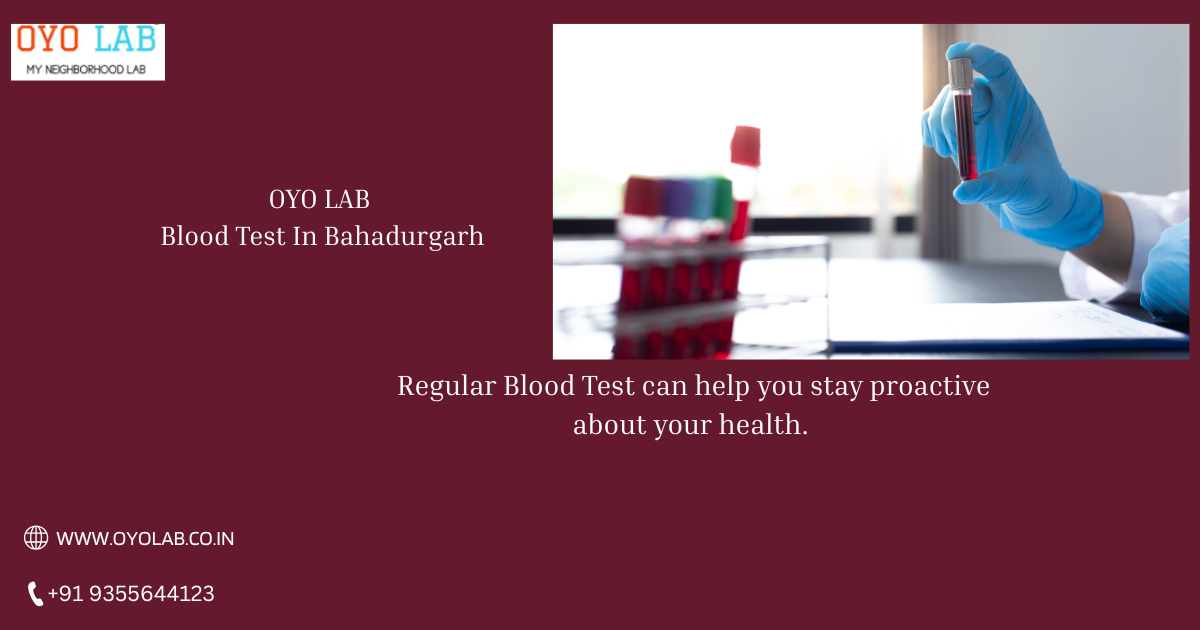
Blood Test In Bahadurgarh
By Shilpa | April 01, 2025
What Is Blood Test ?
A Blood Test is a medical procedure that involves taking a small sample of blood to analyze various components. It helps diagnose diseases, monitor health conditions, and assess overall well-being. Blood tests can measure levels of different substances, including:
Red & White Blood Cells – Used to check for infections, anemia, and immune system function.
Hemoglobin & Hematocrit – Helps diagnose anemia or dehydration.
Blood Sugar (Glucose) – Monitors diabetes and metabolic health.
Cholesterol Levels – Checks heart health by measuring good (HDL) and bad (LDL) cholesterol.
Liver & Kidney Function – Assesses organ health by measuring enzyme and protein levels.
Electrolytes & Minerals – Checks hydration and nutrient balance.
Hormones – Evaluates thyroid, reproductive, or adrenal function.
Infections & Diseases – Can detect infections like HIV, hepatitis, or autoimmune diseases.
Types of Blood Tests:
Complete Blood Count (CBC) – Examines blood cells.
Blood Chemistry Panel – Checks organ function and metabolism.
Lipid Panel – Measures cholesterol and triglycerides.
Blood Clotting Tests – Checks for bleeding disorders.
Blood Culture – Detects infections in the bloodstream.
Importance Of Blood Test
Blood tests are essential tools in modern medicine, helping doctors diagnose, monitor, and prevent various health conditions. Here’s why they are important:
Early Detection of Diseases
Identifies health issues before symptoms appear (e.g., diabetes, high cholesterol, infections).
Detects cancer, liver disease, kidney disease, and other serious conditions.
Monitoring Health Conditions
Helps track chronic diseases like diabetes, hypertension, and heart disease.
Monitors the effectiveness of treatments and medications.
Evaluating Organ Function
Assesses liver, kidney, heart, and thyroid function.
Ensures organs are working properly to prevent complications.
Checking Nutritional & Hormonal Balance
Detects vitamin deficiencies (e.g., iron, B12, D) that can lead to fatigue or weakness.
Monitors hormone levels affecting metabolism, fertility, and overall health.
Benefits Of Blood Test
Blood tests offer several key advantages for maintaining and improving health. Here are the top benefits:
Identifying Deficiencies & Nutritional Needs
Detects vitamin and mineral deficiencies (e.g., iron, B12, calcium).
Supports better diet and supplement choices for optimal health.
Detecting Infections & Immune System Issues
Helps diagnose bacterial, viral, and autoimmune diseases.
Assists in choosing the right treatment and monitoring recovery.
Checking Blood Clotting & Anemia
Identifies clotting disorders that may cause excessive bleeding or clot formation.
Detects anemia (low red blood cells) to prevent fatigue and weakness.
Personalized Health & Wellness Guidance
Provides insights into cholesterol levels, blood sugar, and more.
Encourages lifestyle changes for a healthier future.